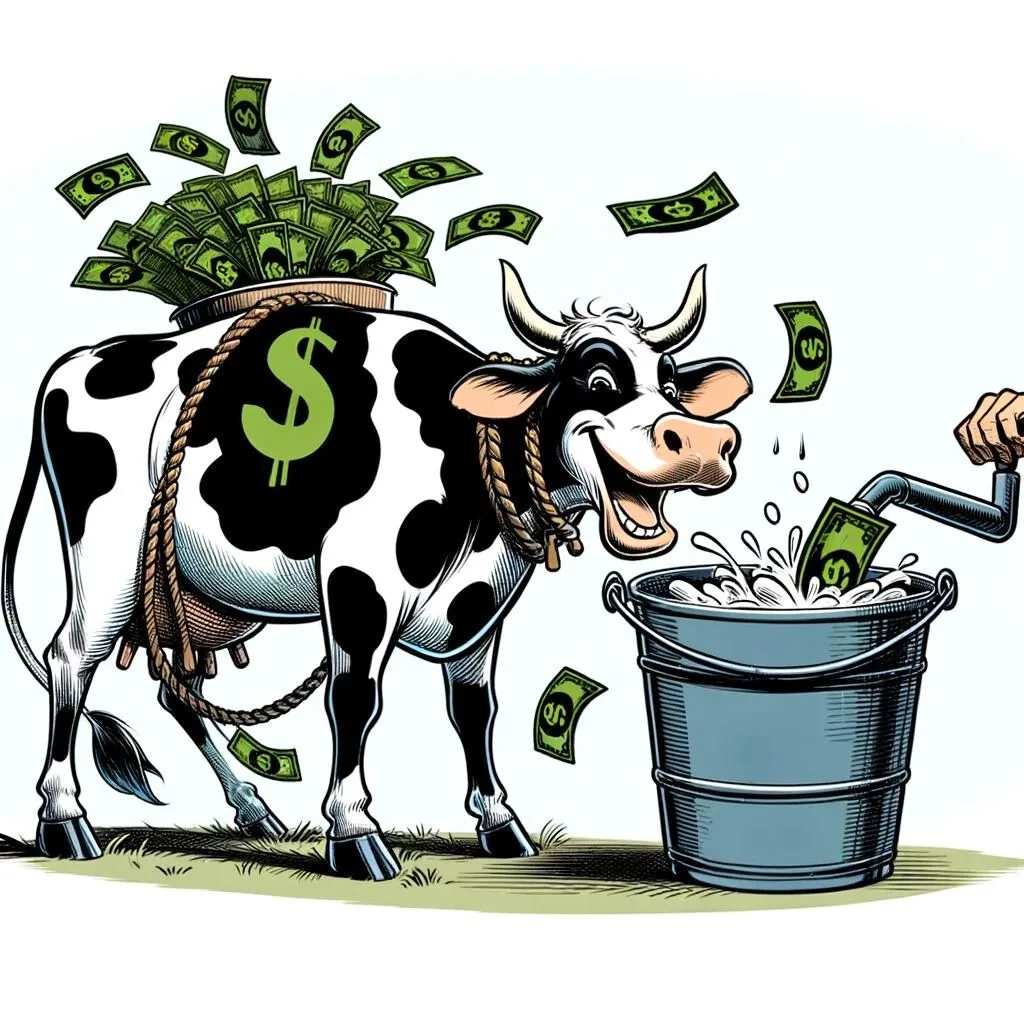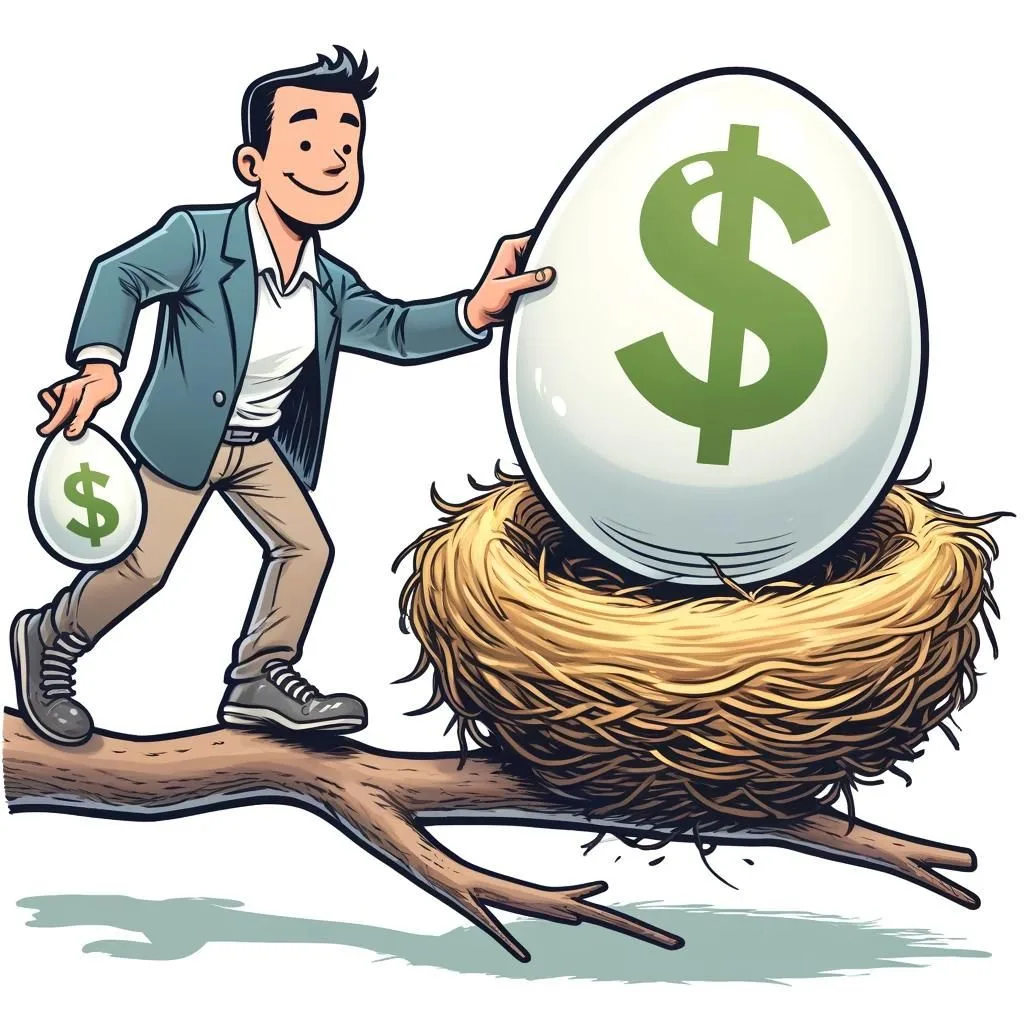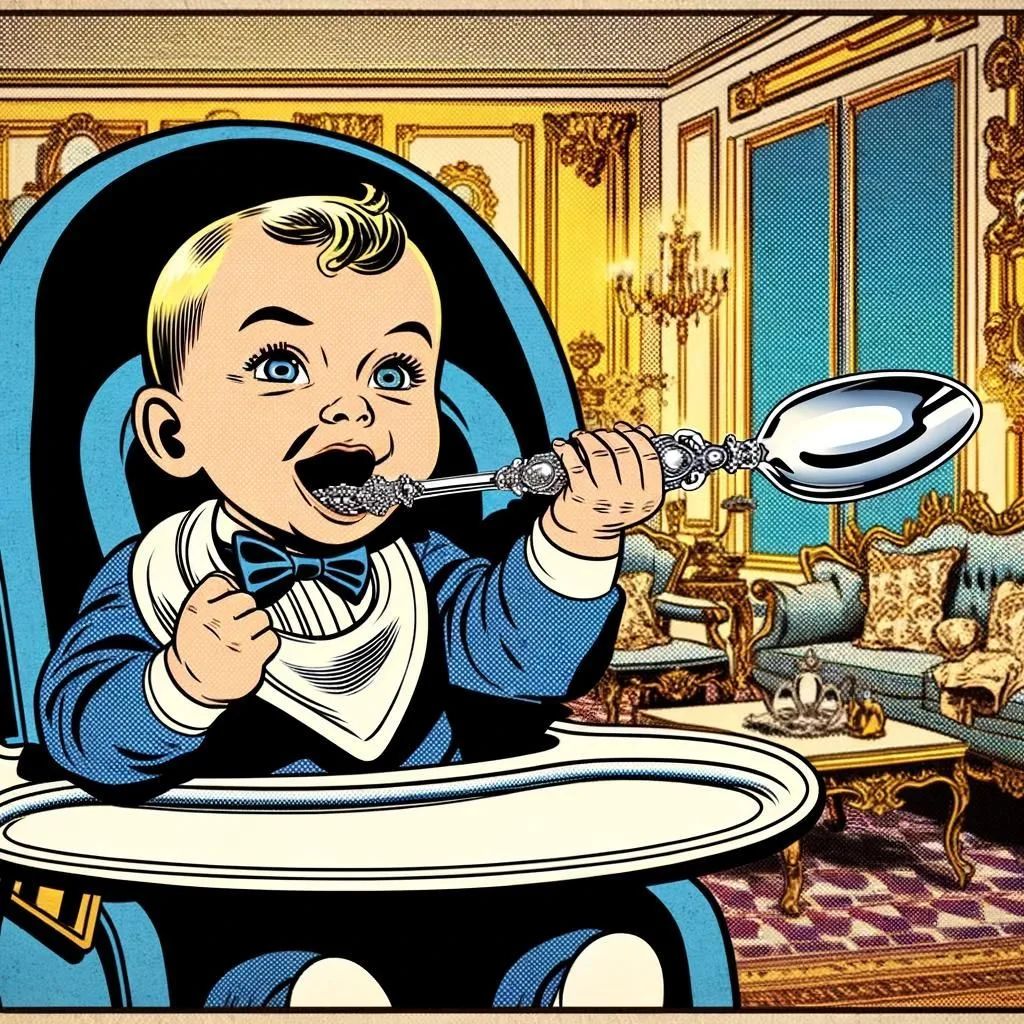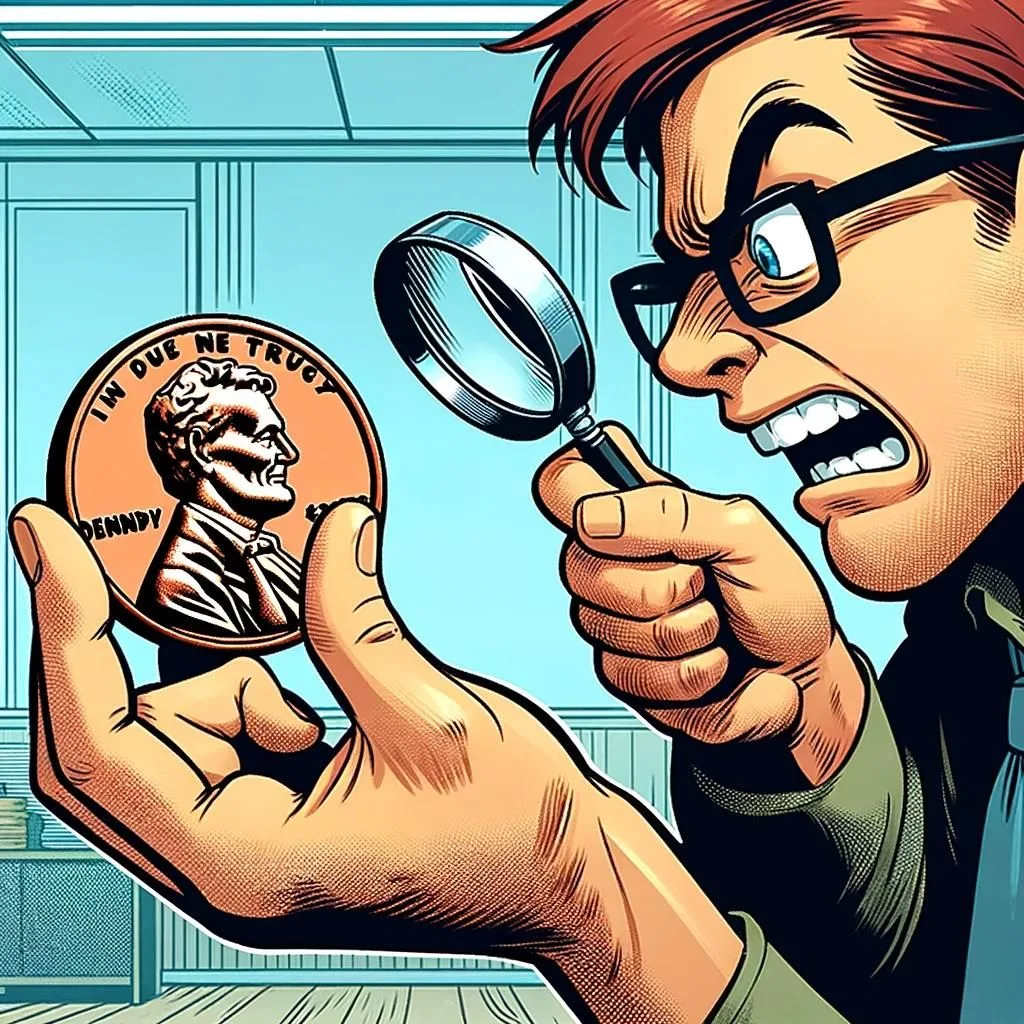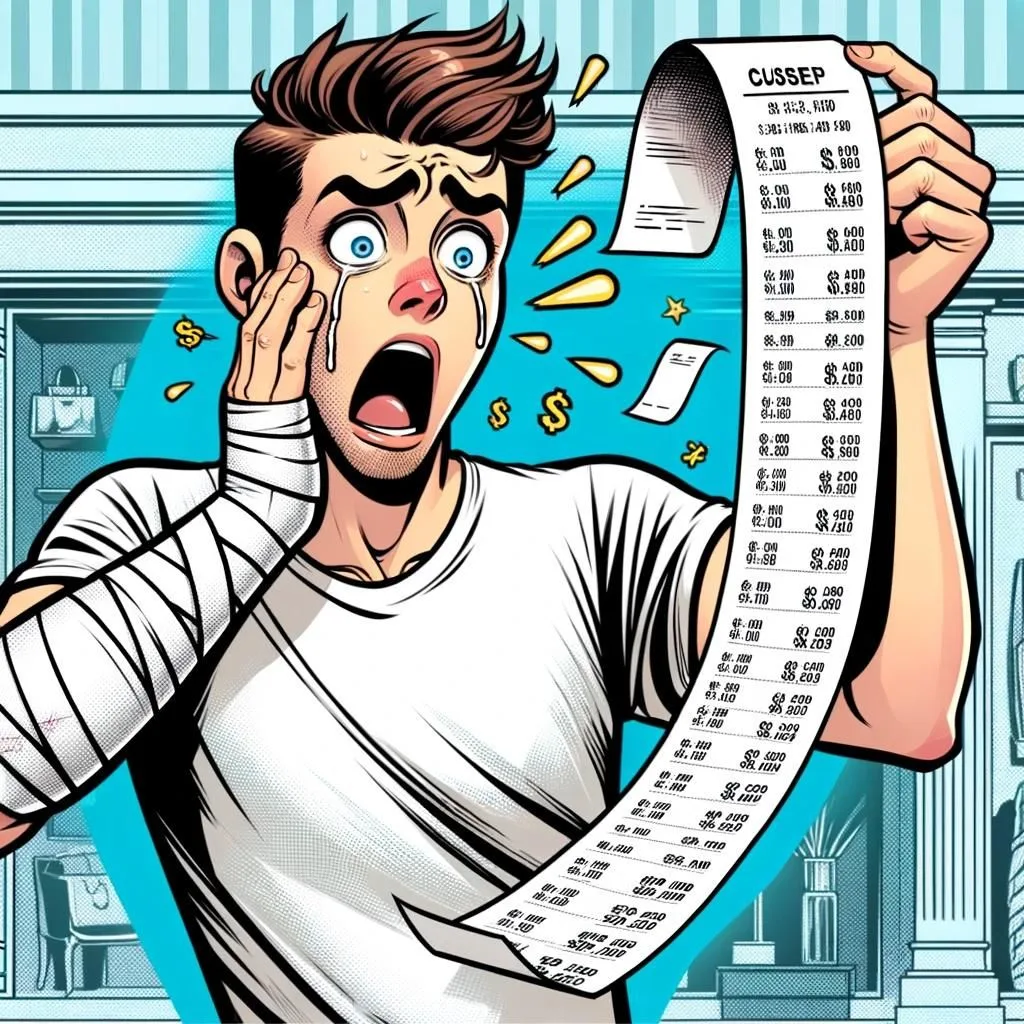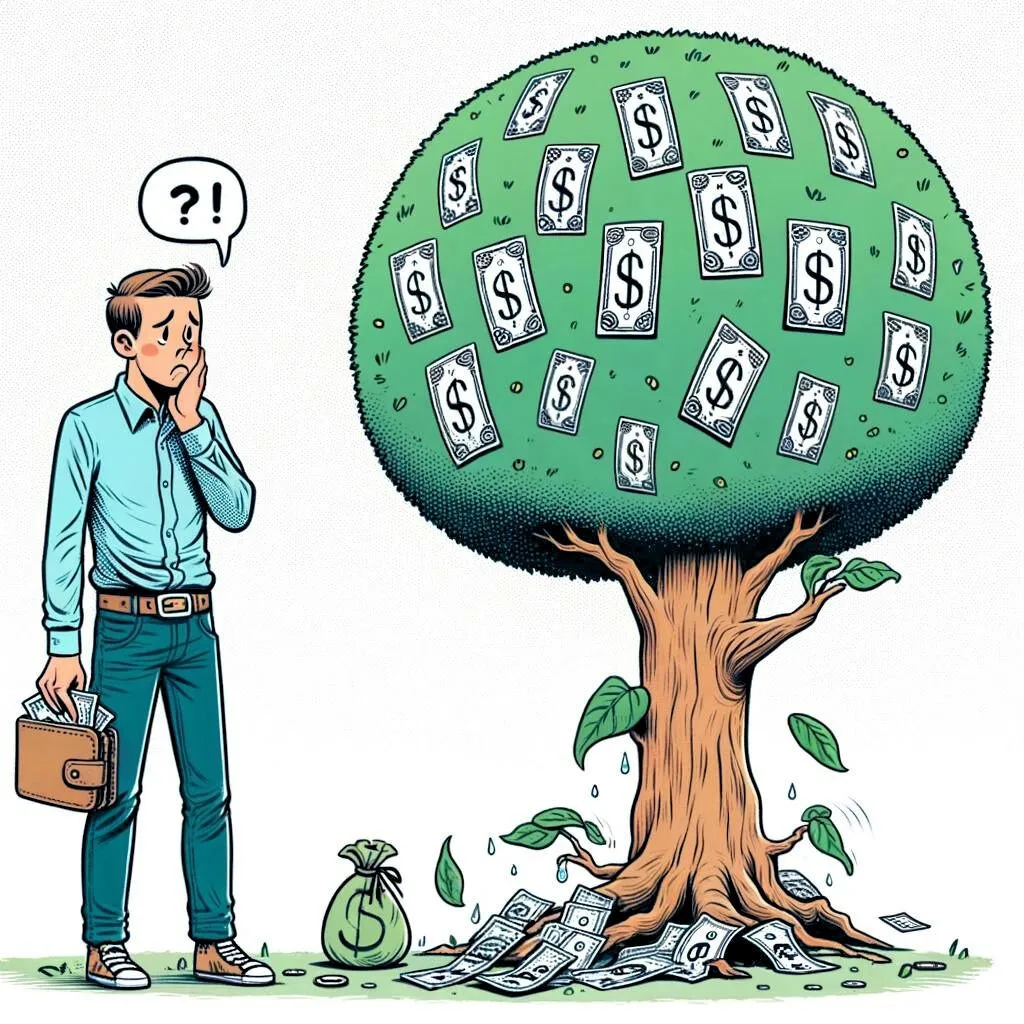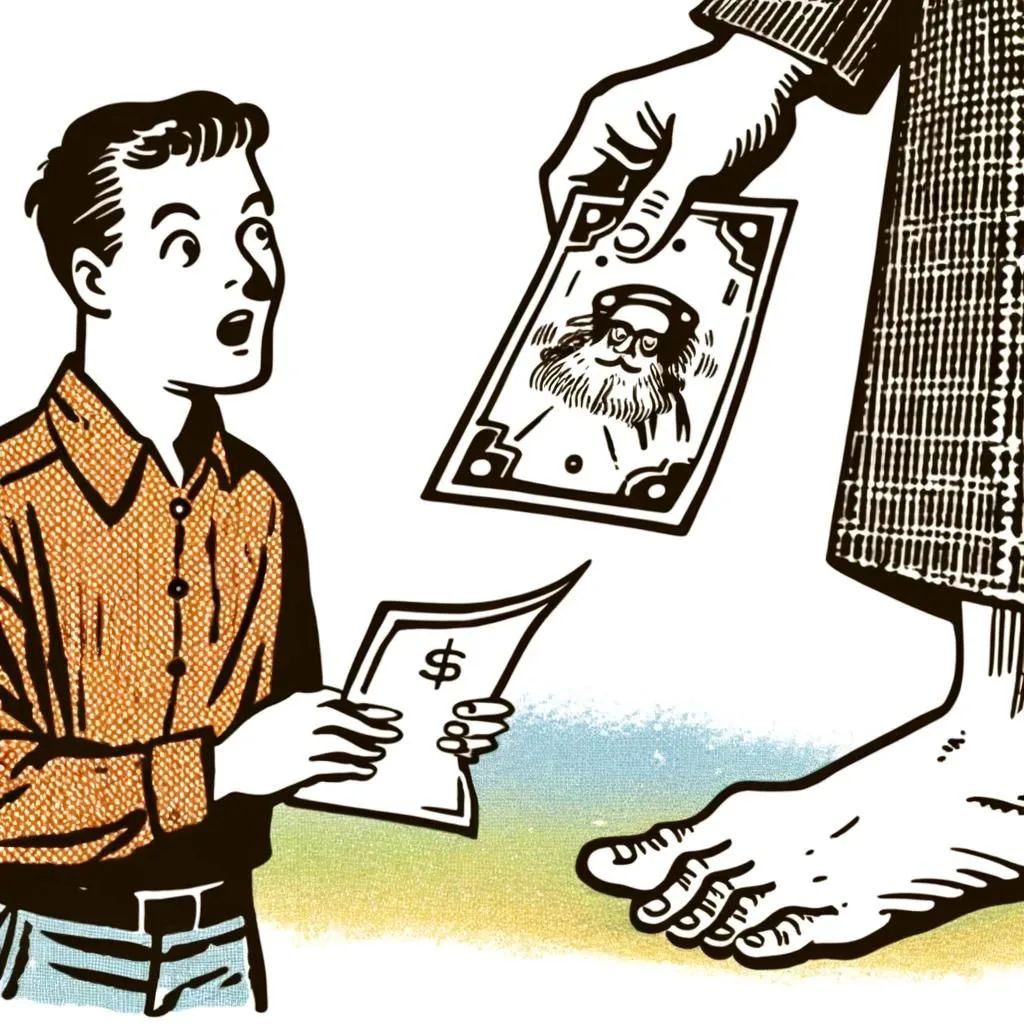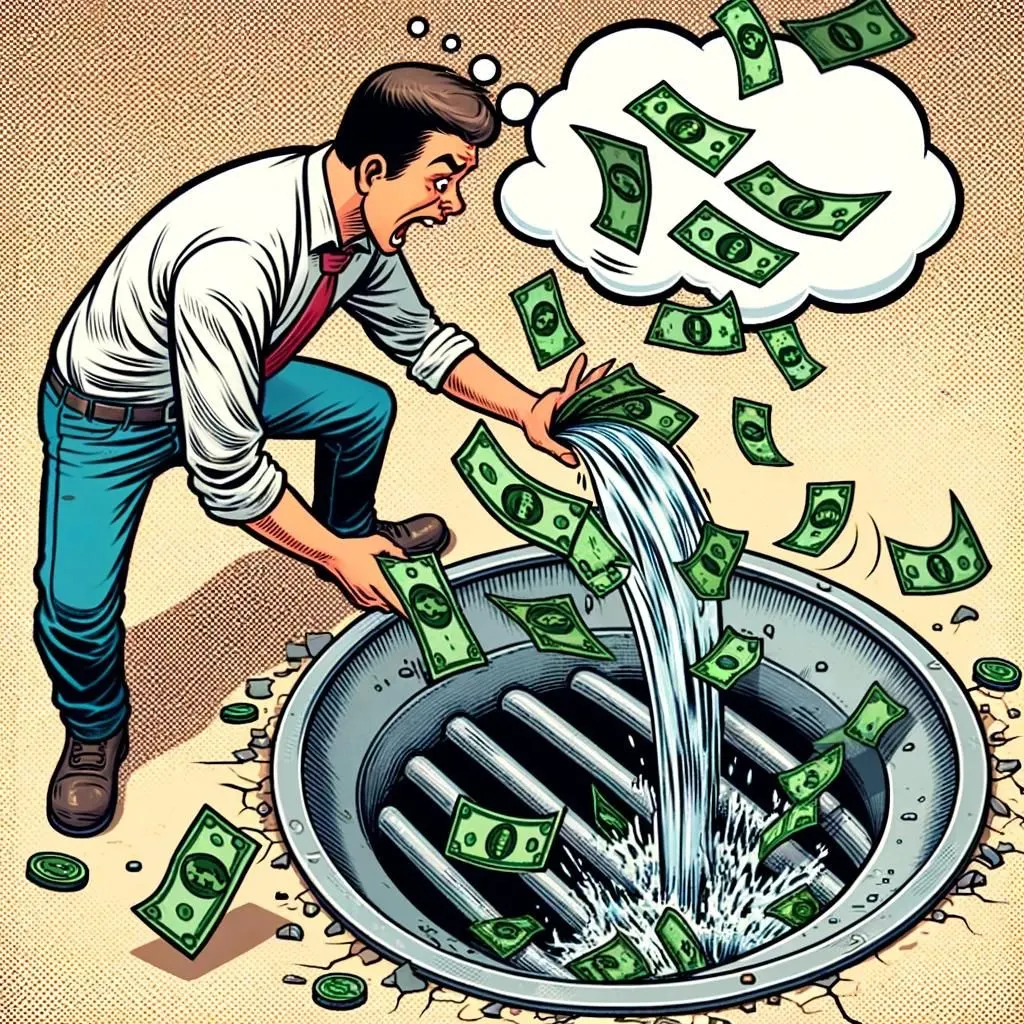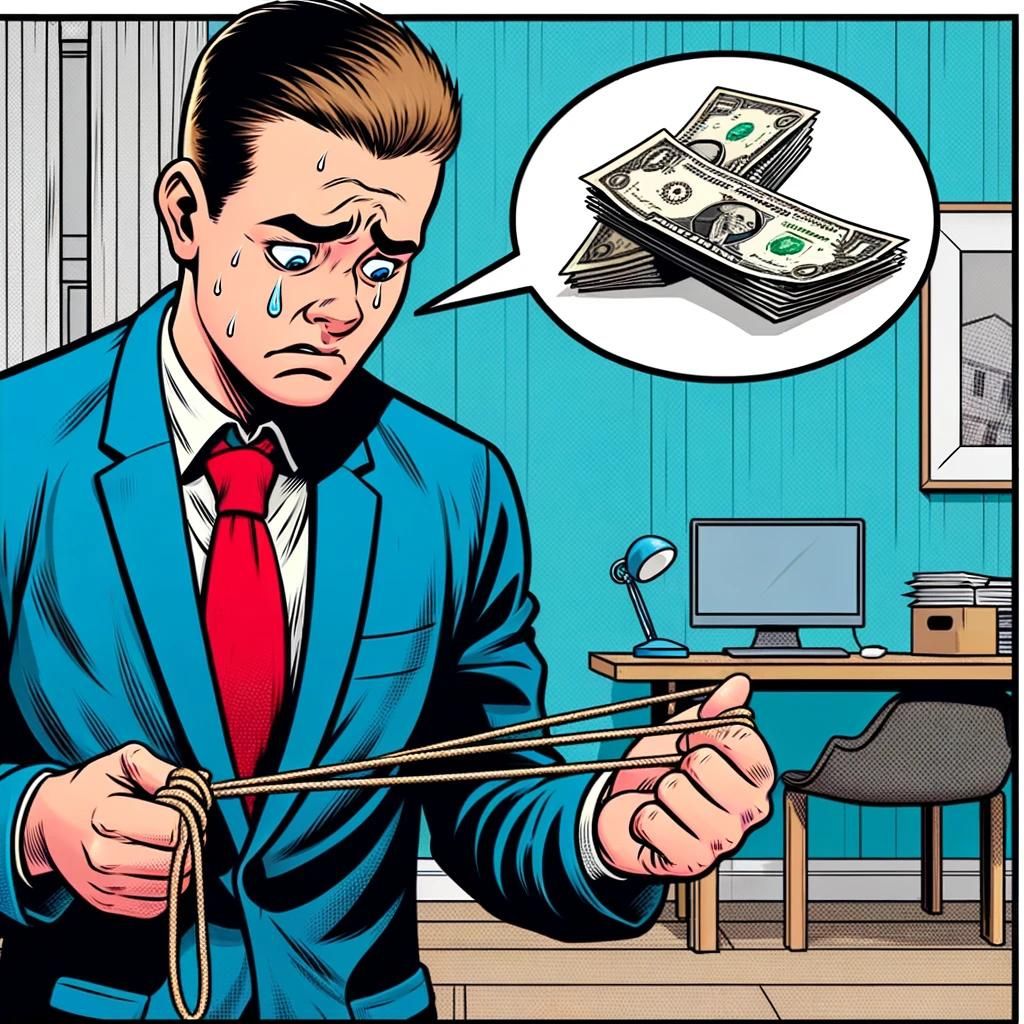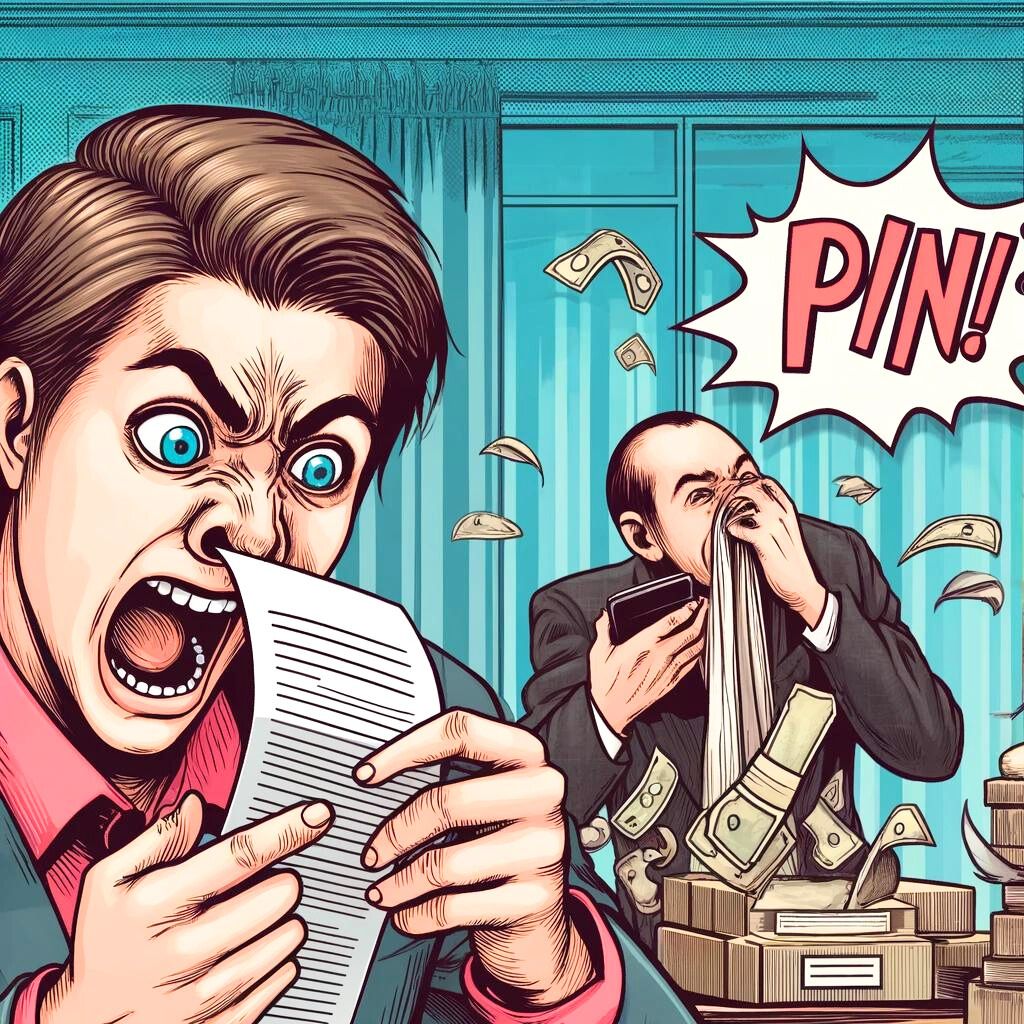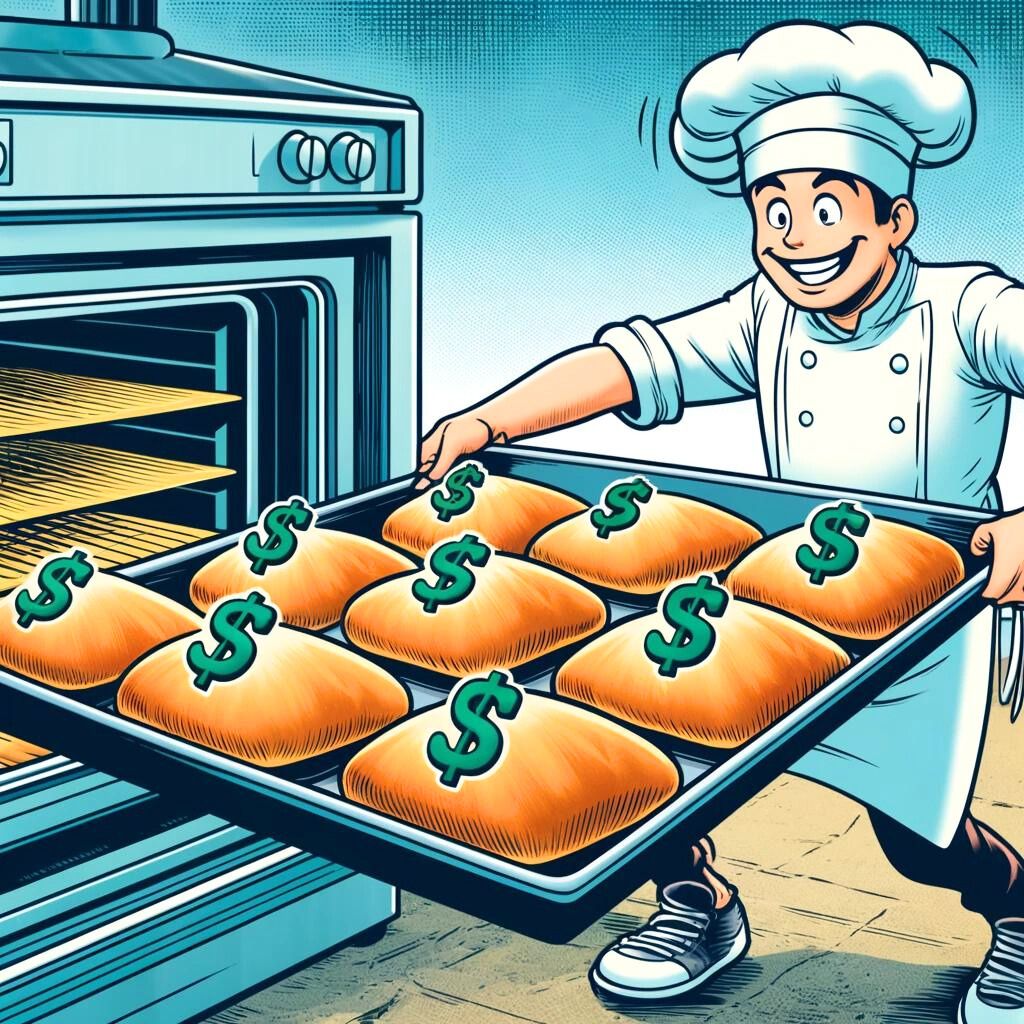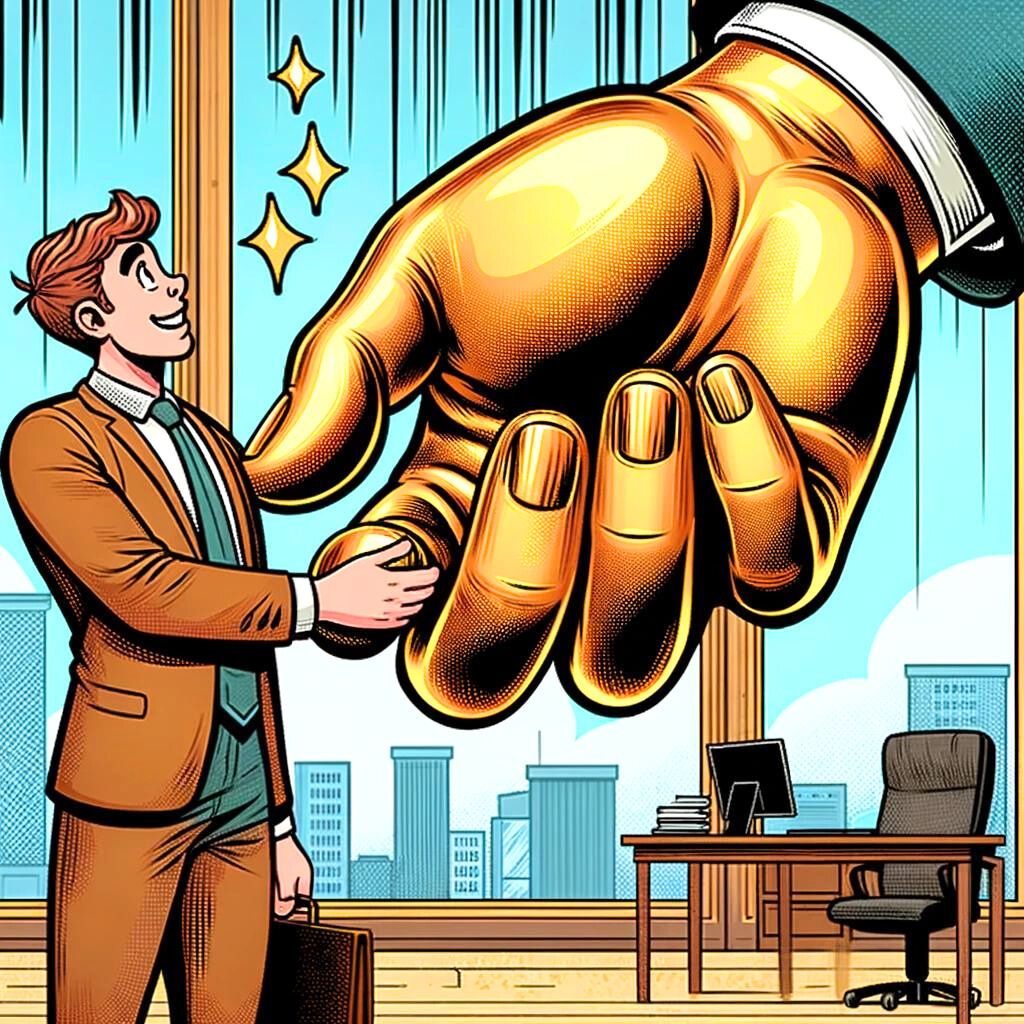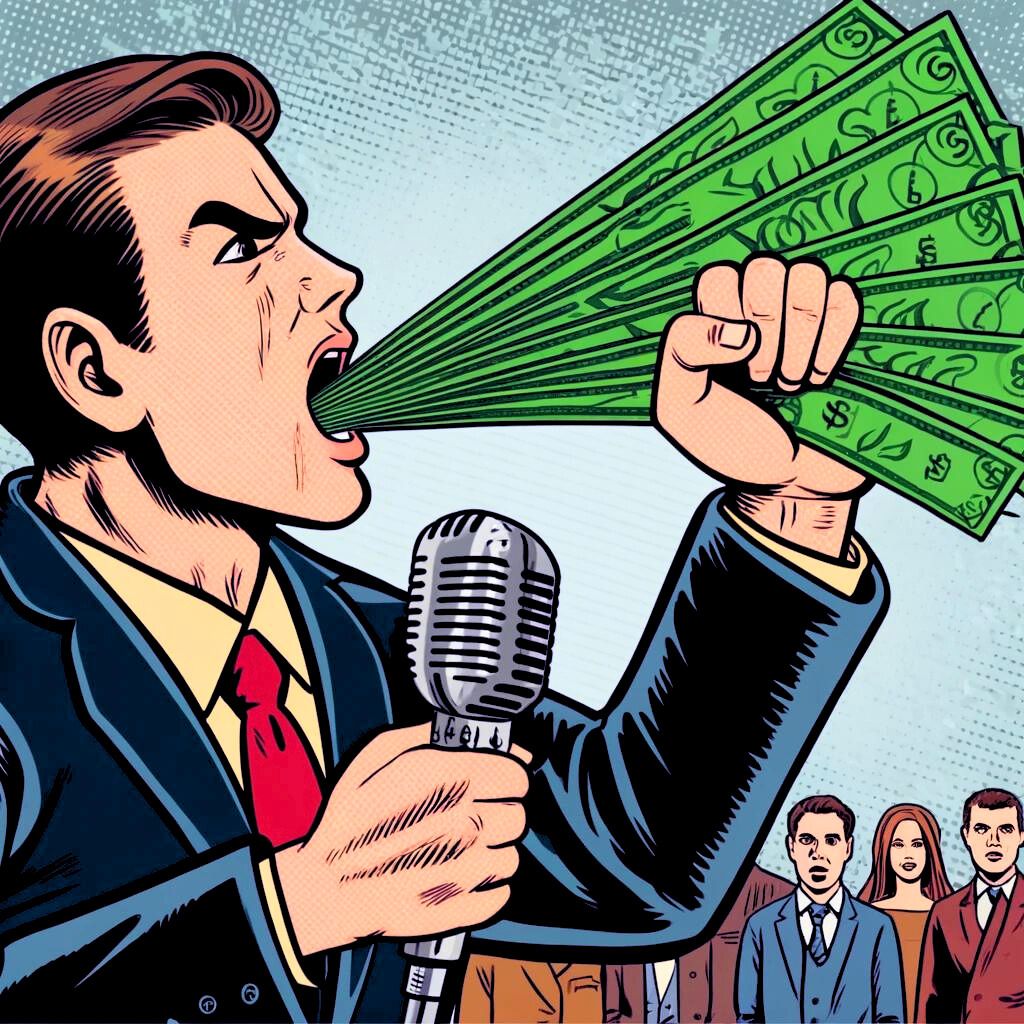Welcome to our playful dive into the world of money idioms!
Ever wonder what it means to “break the bank” or why we say “money doesn’t grow on trees”?
Linguaholic got you covered with a list of hilarious and quirky expressions that bring our financial foibles to life.
Whether you’re a penny-pincher or someone who loves to bring home the bacon, these idioms will add some fun and flair to your vocabulary.
Without further ado, let’s dive right in!
1. Break the bank
Ever feel like that fancy dinner or new gadget is just too much? Well, that’s when you “break the bank.” This idiom means spending all your money or going way over budget. Think of it as the financial equivalent of eating a whole cake when you only wanted a slice.
The term originally came from gambling, where winning more than the house could pay out meant you’d “broken the bank.”
So, next time you splurge on something extravagant, remember: you might just be breaking the bank.
Example 1: Splurging on front-row concert tickets might break the bank, but it’s worth it for your favorite band!
Example 2: That shopping spree broke the bank – now it’s instant noodles for dinner all week.
2. A dime a dozen
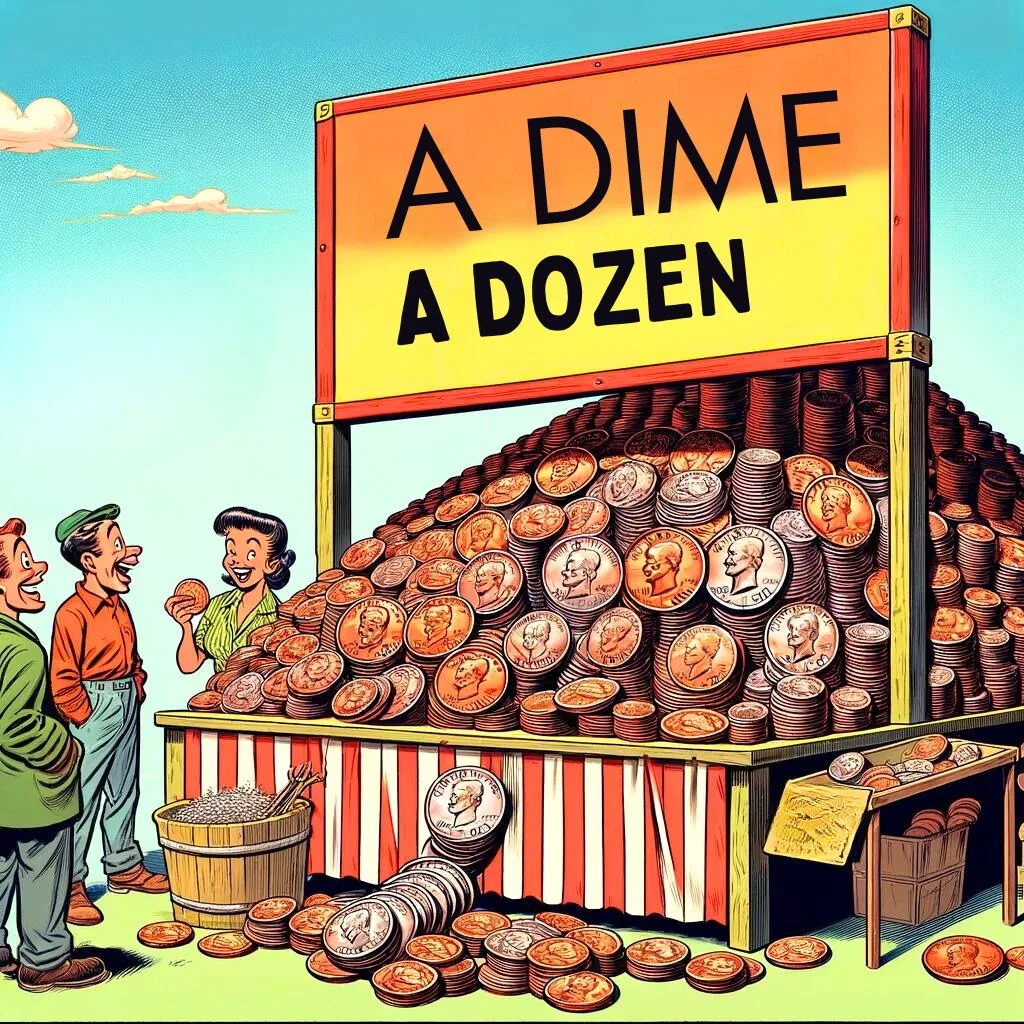 When something is so common it’s practically worthless, it’s “a dime a dozen.” This idiom paints a picture of items being so cheap and abundant that even a dime could buy a dozen.
When something is so common it’s practically worthless, it’s “a dime a dozen.” This idiom paints a picture of items being so cheap and abundant that even a dime could buy a dozen.
Originating from the early 19th century when the dozen indeed sold goods for a dime, it’s a fun way to say something isn’t rare at all.
So, if someone tells you your idea is “a dime a dozen,” it’s time to spice it up!
Example 1: Tourist trinkets in this city are a dime a dozen.
Example 2: Those pop songs are a dime a dozen on the radio these days.
3. Money talks
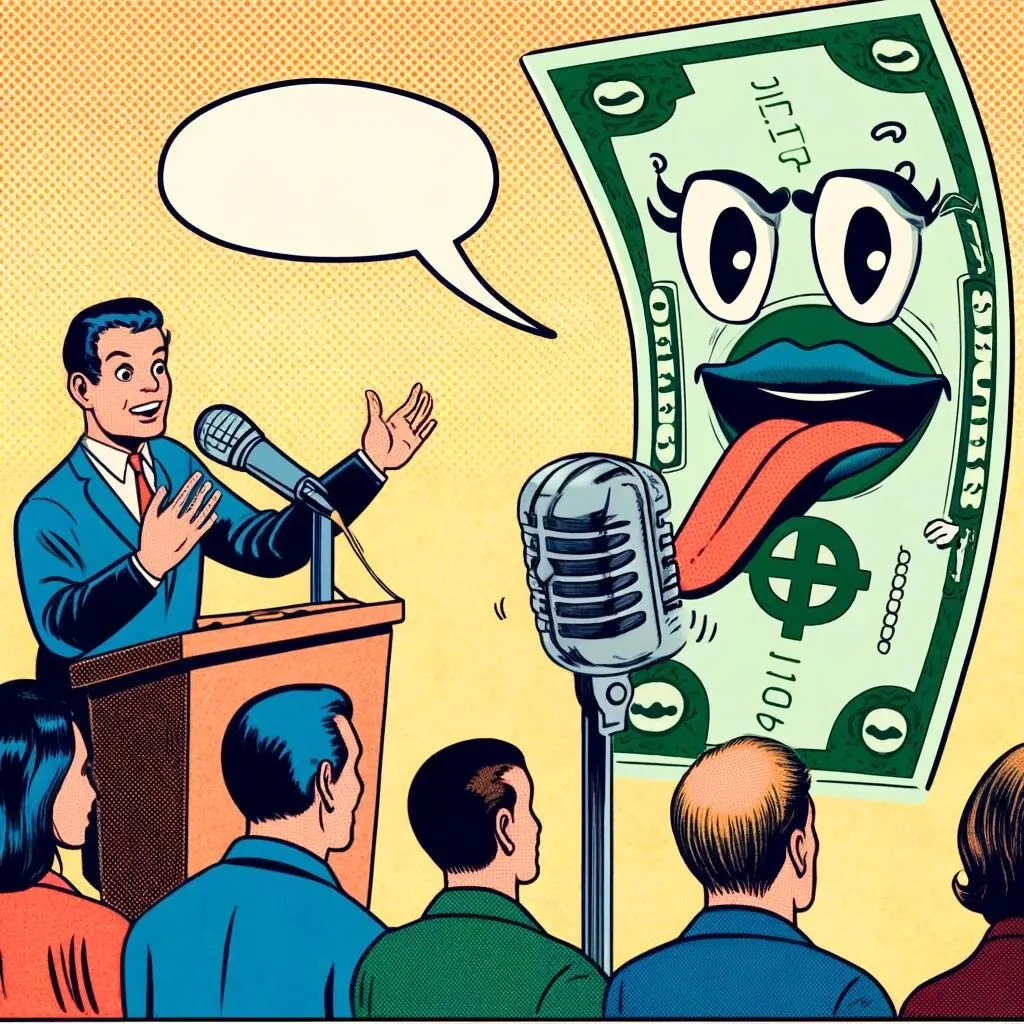 When people say “money talks,” they mean that money has the power to influence people and get things done. Think of it as the ultimate conversation starter that always gets attention.
When people say “money talks,” they mean that money has the power to influence people and get things done. Think of it as the ultimate conversation starter that always gets attention.
The phrase highlights the idea that having money can open doors, sway decisions, and get you what you want. It’s a reminder that, like it or not, cash has a lot of clout.
Example 1: He got the best table in the restaurant because, well, money talks.
Example 2: She managed to get the permit quickly – money talks, after all.
4. Penny for your thoughts
Ever catch someone deep in thought and wonder what’s on their mind? That’s when you ask, “Penny for your thoughts.” This idiom is a playful way to encourage someone to share what they’re thinking.
Dating back to the 16th century, it suggests that even a small offering might coax out some valuable insights or interesting musings.
Example 1: You’ve been quiet all evening. Penny for your thoughts?
Example 2: He seemed lost in thought, so I said, “Penny for your thoughts?”
5. Cash cow
When a business or product consistently generates a lot of money with little effort, it’s a “cash cow.” Think of it as that reliable, money-making gem everyone wishes they had.
The term likely comes from the dairy industry, where cows provide a steady supply of milk (and money) over time.
Example 1: Their new app has turned into a real cash cow.
Example 2: That franchise is a cash cow for the company.
6. Bring home the bacon
To “bring home the bacon” means to earn money for your family. It’s all about being the provider and ensuring there’s food on the table, literally and figuratively.
This idiom dates back to the 12th century when bacon was a prized food item.
Example 1: After getting a promotion, she’s really bringing home the bacon now.
Example 2: He’s been working extra hours to bring home the bacon.
PS: The idiom “Bring home the bacon” is also featured in our food idioms article. If you are a foodie, you will want to check that one out as well: Food Idioms
7. Nest egg
A “nest egg” is money saved for the future, often for retirement. Think of it as your financial safety net, carefully built up over time.
The term comes from the practice of placing a real or fake egg in a bird’s nest to encourage laying more eggs, symbolizing growth and saving.
Example 1: They’ve been saving for years and have a nice nest egg.
Example 2: Investing wisely can help grow your nest egg.
8. Born with a silver spoon in one’s mouth
If someone is “born with a silver spoon in their mouth,” they’re born into wealth and privilege. It’s a colorful way to describe someone who’s had a comfortable life from the start.
This idiom dates back to wealthy families in the past, who used silver spoons as a symbol of status.
Example 1: He never had to worry about money; he was born with a silver spoon in his mouth.
Example 2: People think she’s spoiled because she was born with a silver spoon in her mouth.
9. Penny-pincher
A “penny-pincher” is someone who’s very frugal or stingy with money. They’re the ones who squeeze every penny and hate spending more than necessary.
This idiom emphasizes thriftiness, sometimes to the point of being miserly.
Example 1: She’s such a penny-pincher; she won’t buy anything unless it’s on sale.
Example 2: Being a penny-pincher helped him save a lot of money over the years.
10. Cost an arm and a leg
When something “costs an arm and a leg,” it’s ridiculously expensive. It’s a vivid way to express that the price is so high it feels like you’re giving up your limbs to pay for it.
The idiom highlights extreme expense, often for things that are luxurious or unnecessary.
Example 1: That designer bag costs an arm and a leg!
Example 2: Fixing the car after the accident cost an arm and a leg.
11. Money doesn’t grow on trees
“Money doesn’t grow on trees” is a reminder that money is limited and not easy to come by. It’s a way of telling someone to be mindful of spending.
This idiom underscores the effort required to earn money, contrasting with the ease of picking fruit from a tree.
Example 1: We can’t buy a new TV right now; money doesn’t grow on trees.
Example 2: Teaching kids that money doesn’t grow on trees is important.
12. Foot the bill
To “foot the bill” means to pay for something, often something costly. It’s about taking on the financial responsibility for an expense.
The idiom suggests covering the entire cost, sometimes reluctantly.
Example 1: Who will foot the bill for this expensive dinner?
Example 2: The company will foot the bill for your travel expenses.
13. Throw money down the drain
When you “throw money down the drain,” you waste it on something useless. It’s a vivid way to describe frivolous spending.
This idiom emphasizes the futility and wastefulness of such expenditures.
Example 1: Buying that gadget was like throwing money down the drain.
Example 2: Don’t throw money down the drain on things you don’t need.
14. Living on a shoestring
“Living on a shoestring” means living on a very tight budget. It’s about getting by with minimal financial resources.
The idiom paints a picture of frugality and careful spending.
Example 1: After losing his job, he had to start living on a shoestring.
Example 2: College students often find themselves living on a shoestring.
15. Pay through the nose
To “pay through the nose” means to pay an exorbitant amount for something. It’s about being charged much more than what’s reasonable.
The idiom suggests financial pain and excessive cost.
Example 1: We had to pay through the nose for last-minute tickets.
Example 2: If you want premium seats, you’ll pay through the nose.
16. Bring in the dough
To “bring in the dough” means to earn a lot of money. It’s all about making a good income.
This idiom uses “dough” as a slang term for money.
Example 1: His new business is really bringing in the dough.
Example 2: She brings in the dough with her freelance work.
17. Bet your bottom dollar
When you “bet your bottom dollar,” you’re very sure of something. It’s about being confident enough to wager your last dollar.
This idiom emphasizes certainty and confidence.
Example 1: You can bet your bottom dollar he’ll be at the party.
Example 2: I’d bet my bottom dollar that they’ll win the game.
18. Golden handshake
A “golden handshake” is a generous severance package given to someone when they leave a job, especially as a retirement benefit.
This idiom highlights the financial reward for leaving a position.
Example 1: He received a golden handshake when he retired from the company.
Example 2: The CEO’s golden handshake was worth millions.
19. Put your money where your mouth is
To “put your money where your mouth is” means to back up your words with actions or financial support. It’s about proving your commitment.
This idiom challenges someone to demonstrate their sincerity.
Example 1: If you really believe in the project, put your money where your mouth is.
Example 2: He talks about helping others, but it’s time to put his money where his mouth is.
20. Flat broke
When you’re “flat broke,” you have no money at all. It’s a straightforward way to say you’re completely out of cash.
This idiom emphasizes total financial emptiness.
Example 1: After paying all the bills, I’m flat broke.
Example 2: He’s flat broke after his vacation splurge.

Hey fellow Linguaholics! It’s me, Marcel. I am the proud owner of linguaholic.com. Languages have always been my passion and I have studied Linguistics, Computational Linguistics and Sinology at the University of Zurich. It is my utmost pleasure to share with all of you guys what I know about languages and linguistics in general.




